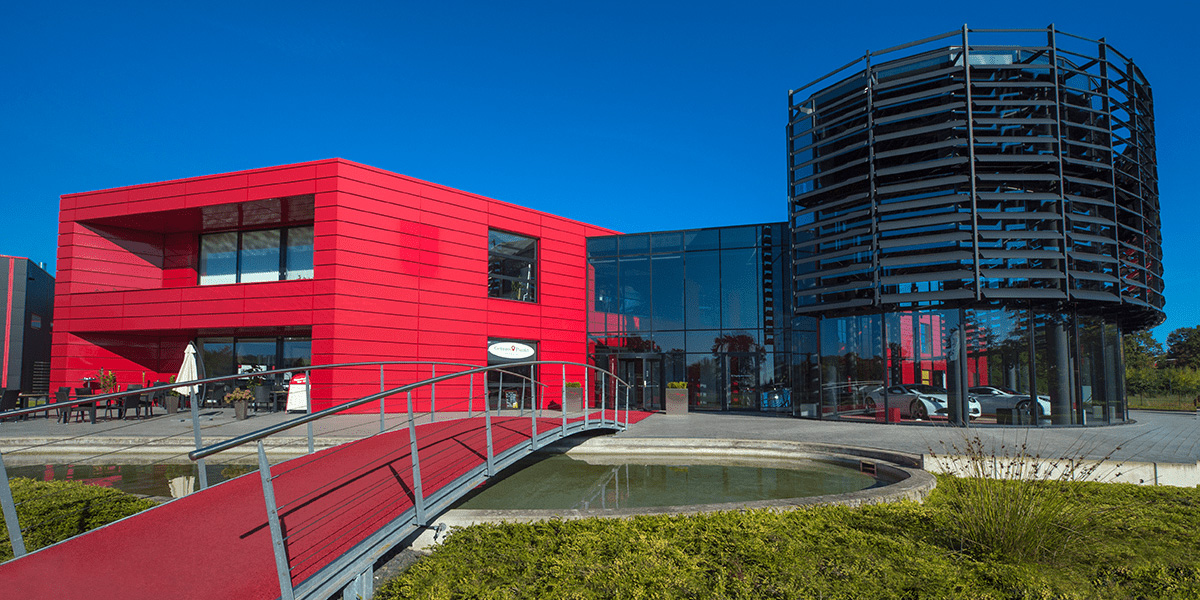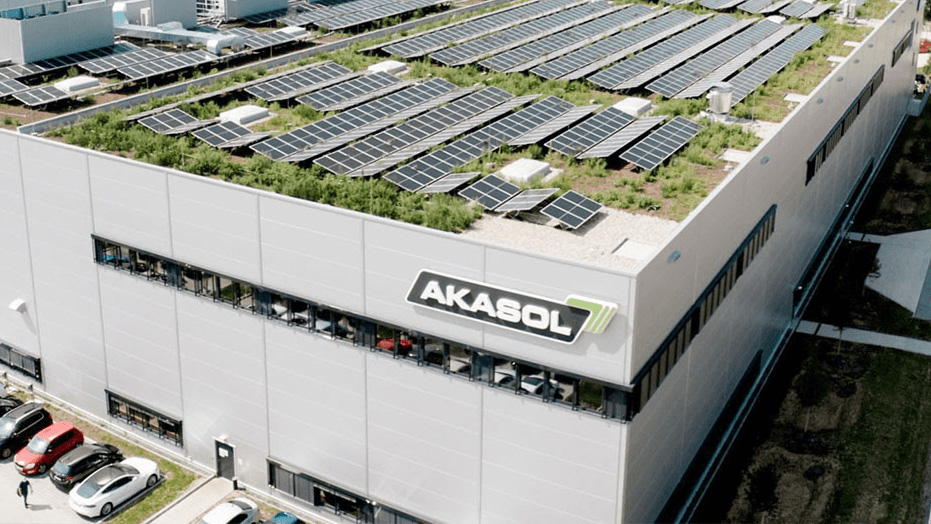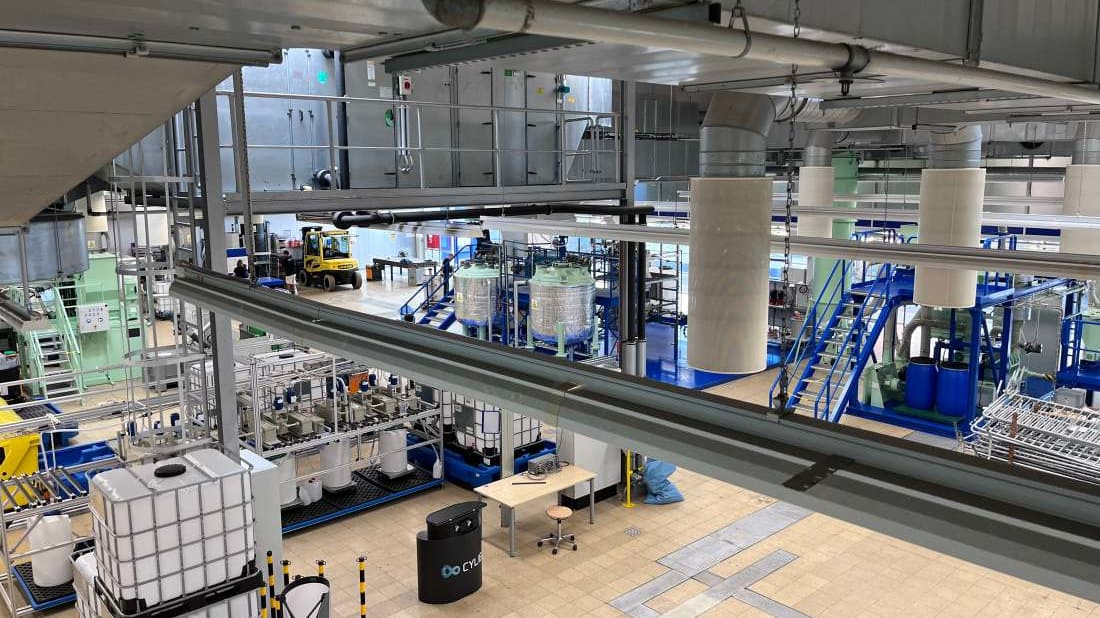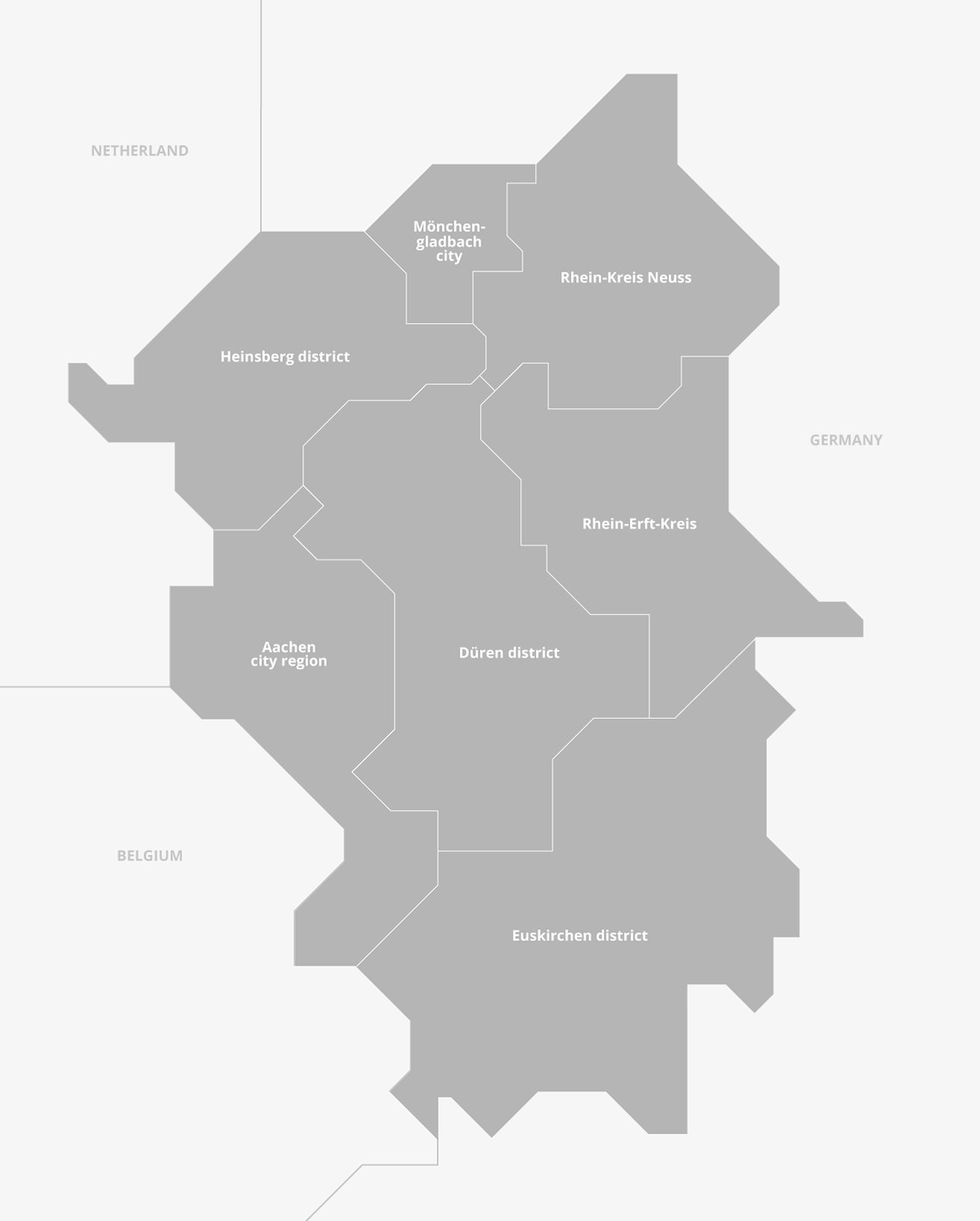An excellent research environment and agile companies are working together on the drives of the future right here in Rheinisches Revier – and are already putting them on the road. The common goal is to reduce emissions while simultaneously creating jobs. Whether electric motors, hydrogen drives or battery production and battery recycling, Rheinisches Revier offers the necessary expertise to give mobility a decisive boost towards climate neutrality. Expertise that is also available to international new mobility and battery technology companies. Here you can find out why investing in Rheinisches Revier is so worthwhile.
E-mobility: Rheinisches Revier is electrified
Maximizing energy efficiency has a longstanding tradition in Rheinisches Revier, making the commitment to alternative vehicles a driving force behind structural change and the advancement of sustainable mobility. The Institute for Automotive Engineering (ika) at RWTH Aachen University, for example, has been working on the future of mobility for 120 years and has been active in the development of novel concepts to develop electromobility.
One example is SpeedE. This project aims to make the innovative potential of electrically powered vehicles apparent and enhance the driving experience compared to conventional vehicles – from comfortable driving characteristics on the highway to foolproof parking. The future of logistics is also directly linked to the city of Aachen, as Streetscooter GmbH produces electric vans for DHL here.

Battery technology production and battery recycling in Rheinisches Revier
Battery technology is at the heart of e-vehicles such as the Streetscooter. And Rheinisches Revier has focused on this when attracting investment. They’re taking a holistic approach with both battery cell production and battery recycling fitting into the region's new mobility concept. And with an outstanding research environment for battery technology companies, Rheinisches Revier can bring a great deal of dynamism to new partnerships.
Battery technology projects that your investments could benefit from
In the Center of Excellence project, two pilot plants are being built in Düren to further develop the production of lithium-ion batteries. Innovative materials and components are intended to make production and subsequent operation both safer and more environmentally friendly. For example, a new type of cell architecture for lithium-ion batteries could prevent a fire from occurring in the event of a short circuit or damage to the cell. The technology also makes it possible to reduce the weight of cells and modules, which results in lower costs and greater range.
The overarching goal of the Battery Launch Center NRW is to put battery technology innovations into practice quickly and cost-effectively. In practical terms, they're finding new ways to produce battery modules and packs more flexibly and more economically. Both manufacturers and users will have the opportunity to develop battery prototypes and first samples and will even be able to produce small and pilot series. The renowned Fraunhofer ILT and the Laserbearbeitungs- und Beratungszentrum GmbH (LBBZ) are coordinating this project.
In the PrimeSite Rhine Region between Cologne, Bonn and Aachen, Rheinisches Revier is also planning a Smart Mobility Campus. With 140 hectares, suppliers of battery technologies and electric vehicles will find optimal conditions for their production.
Battery technology companies with investments in Rheinisches Revier
In addition to the application-oriented, cutting-edge research that fosters close collaboration with partners in industry, several regional companies are also contributing their ideas for the development of battery technology. For example, the following three:

Voltabox
Voltabox has been developing and producing lithium-ion battery systems for industrial applications, electromobility and stationary energy storage since 2014. What makes it special is that the company uses different cell chemistries. One of its unique selling points is its high-voltage expertise. As such, most of its customers come from the bus, construction and agricultural machinery sectors.

Akasol
The Darmstadt-based battery company Akasol has a branch in Aachen and develops modular high-performance battery systems for electric and hybrid commercial vehicles.

Cylib
On average, electric car batteries last around ten years. And that’s when the work of cylib begins. The Aachen-based start-up specializes in lithium-ion battery recycling and wants to bring raw materials such as cobalt, nickel and manganese back into production. In 2026, cylib will open a state-of-the-art factory at Chempark Dormagen that will recycle 30,000 batteries a year. Without question, this recycling pioneer could be a valuable partner for any battery technology company with an investment in Rheinisches Revier.
Scientific power for new drives

Various faculties and institutes at the German university of excellence are dedicated to battery technology. And due to the university’s practice-oriented approach, they may also serve battery technology companies with investments in Rheinisches Revier. The Institute for Power Electronics and Electrical Drives (ISEA), for example, conducts research into battery management systems, cell characterization and battery recycling. The Chair of Production Engineering of E-Mobility Components is also involved in battery technology research. Meanwhile, the Chair of Electrochemical Energy Conversion and Storage Systems (CEEC) focuses on battery materials, cell technology and system integration.
Aachen University of Applied Sciences offers a Master's degree course in International Automotive Engineering (IAE). In three semesters, students gain knowledge about new and sustainable technologies in the automotive industry. They learn how three things can be combined in this important economic sector: economy, prosperity and climate protection.
ILT researchers develop concepts for power electronics packaging, battery technology and the construction of drive systems. Additionally, there is a focus on laser-based processes to produce battery modules and battery packs. ILT also designs processes that make production more economical and the battery recycling business more efficient.
With around 7,500 employees, Forschungszentrum Jülich is one of the largest interdisciplinary research centers in Europe. The Institute of Energy and Climate Research (IEK) is currently conducting a great deal of materials research and developing cells for various battery types. Their experts also want to make solid-state batteries more competitive, which are intended to give electric cars a significantly longer range. The same applies to redox flow batteries.
The IPT develops system solutions for the automated, networked production of sustainable and resource-efficient products. Consequently, the institute also aims to optimize the production processes of battery technologies. The experts are currently developing special machines and modules that companies can use to scale up their production sustainably – right through to remanufacturing. There are even systems available for new production tasks, including laser drying of the electrode coating for lithium-ion batteries.
Beyond battery technology:
Flowing with hydrogen
In addition to electromobility, hydrogen drives are another approach that can find optimal conditions in Rheinisches Revier. In fact, the region has an ideal position in the H2 value chain – in Düren, even local public transport is switching to hydrogen. The Helmholtz Cluster for a Sustainable and Infrastructure-Compatible Hydrogen Economy (HC-H2) is a project with almost one billion euros in funding that aims to help H2 technologies reach market maturity quickly. At the FCI Fuel Cell Industrialization Center, specialists are researching hydrogen drives and paving the way for innovations to be put into practice.
The future in everyday tests today
No matter which technology is used to power climate-friendly vehicles, they can mature in practical tests in Aldenhoven. This is where the RWTH operates the Aldenhoven Testing Center. Experts from various disciplines work here to develop and research automotive systems as well as check their suitability for everyday use. To do this, they use a total of twelve track sections on a closed test site.
Autonomous driving is also set to make progress in Aldenhoven. The appropriate components could be supplied by QCG Computer GmbH, a subsidiary of Quanta Computer from Taiwan. Starting in 2025, QCG will manufacture high-precision electronic systems and devices at Brainergy Park Jülich, particularly for the field of autonomous driving. In a few years' time, the future of mobility will move from the test track to public roads.

You want more range? Invest in Rheinisches Revier!
Rheinisches Revier has the research institutions, the economic environment and the infrastructure that make battery technology investments from international players particularly lucrative. NRW.Global Business will show you how you can take advantage of these conditions and secure funding. Get in touch with us!